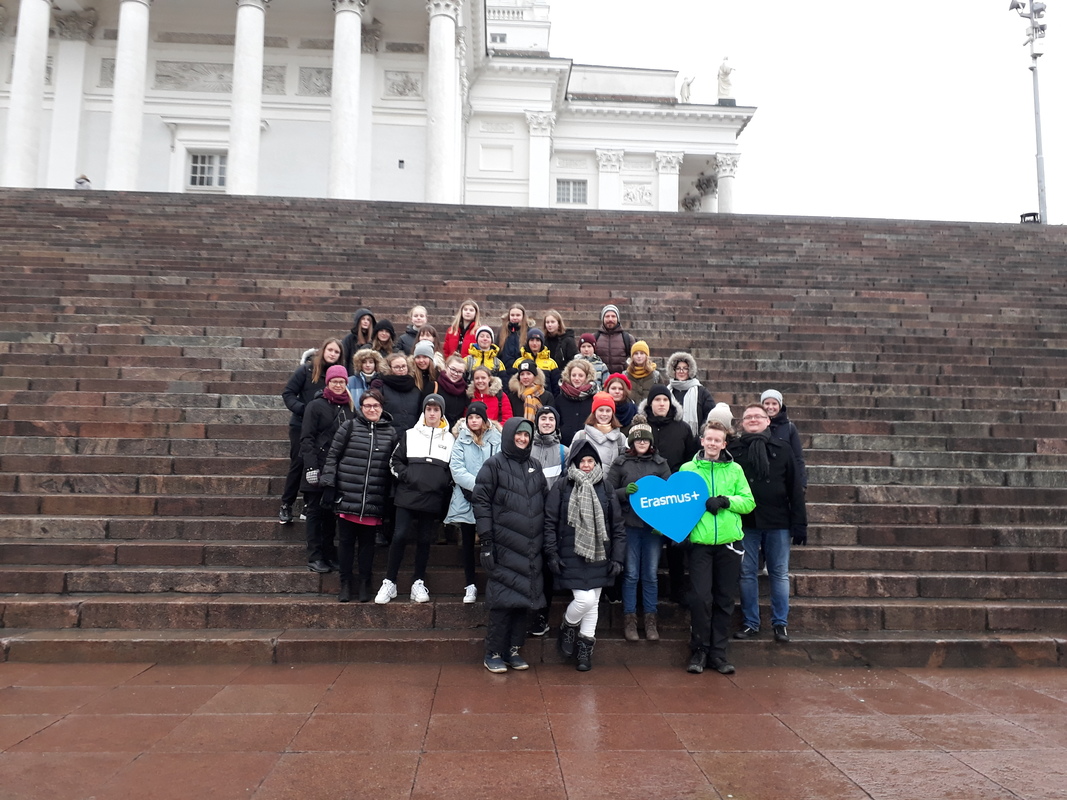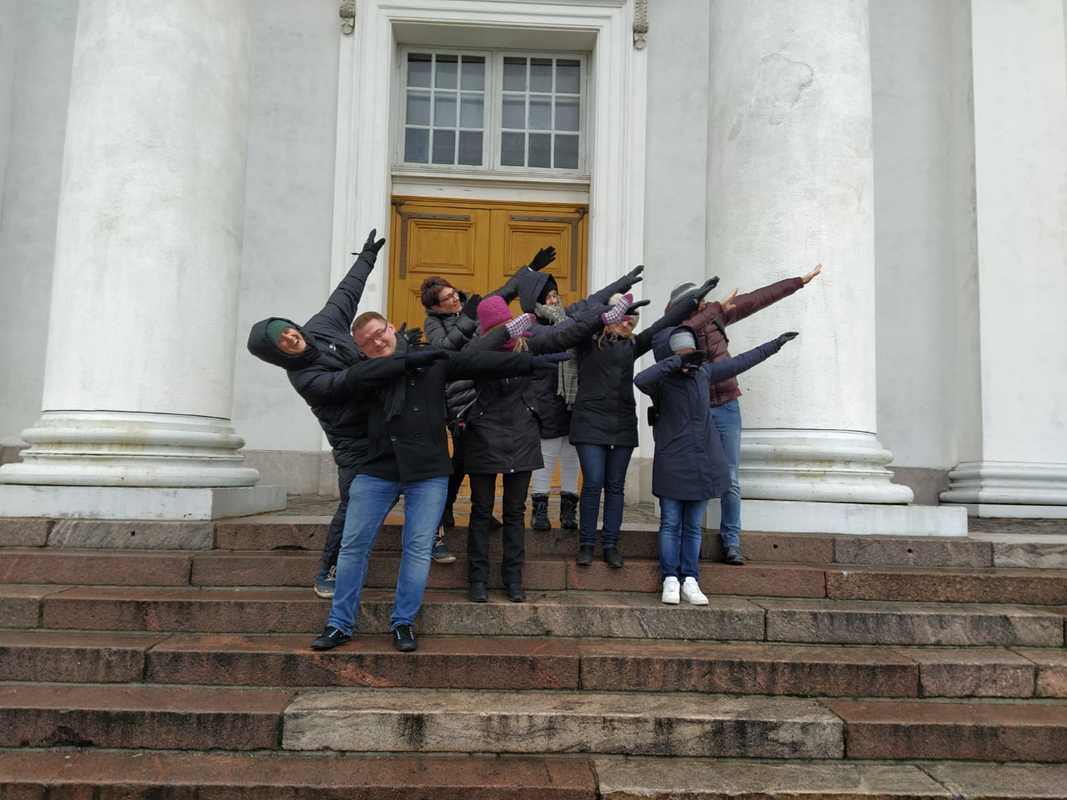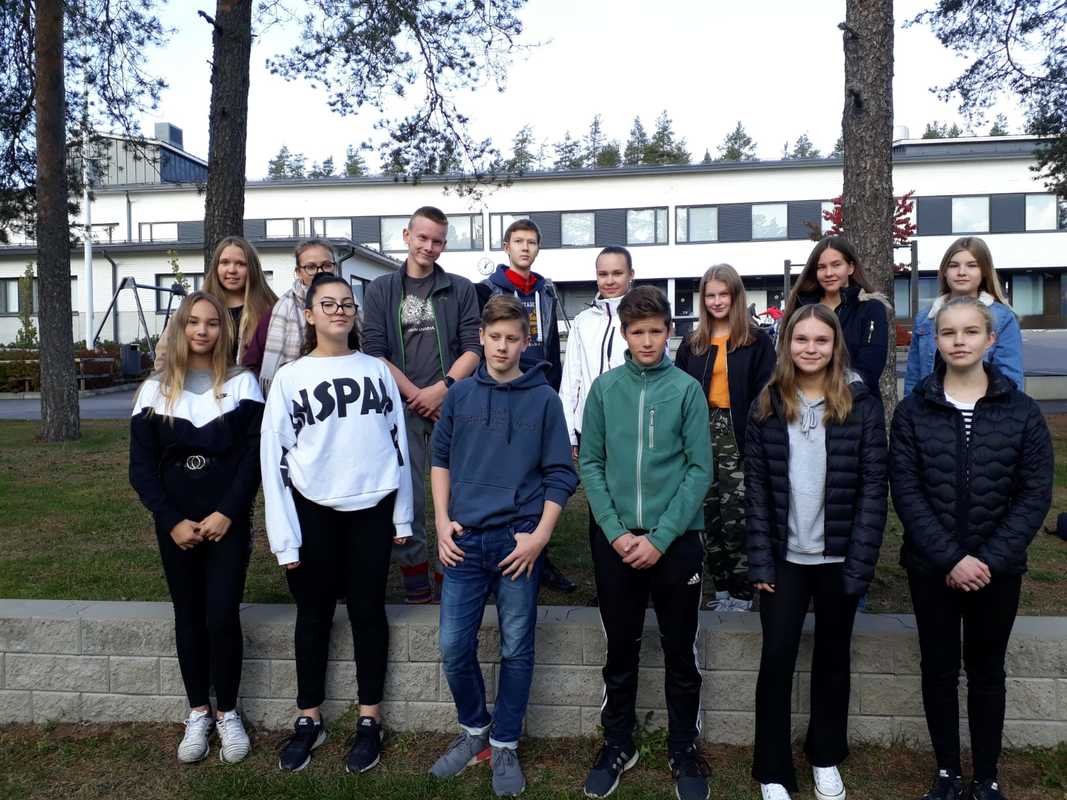Projektiviikko Lohjalla 25.1. - 1.2.2020
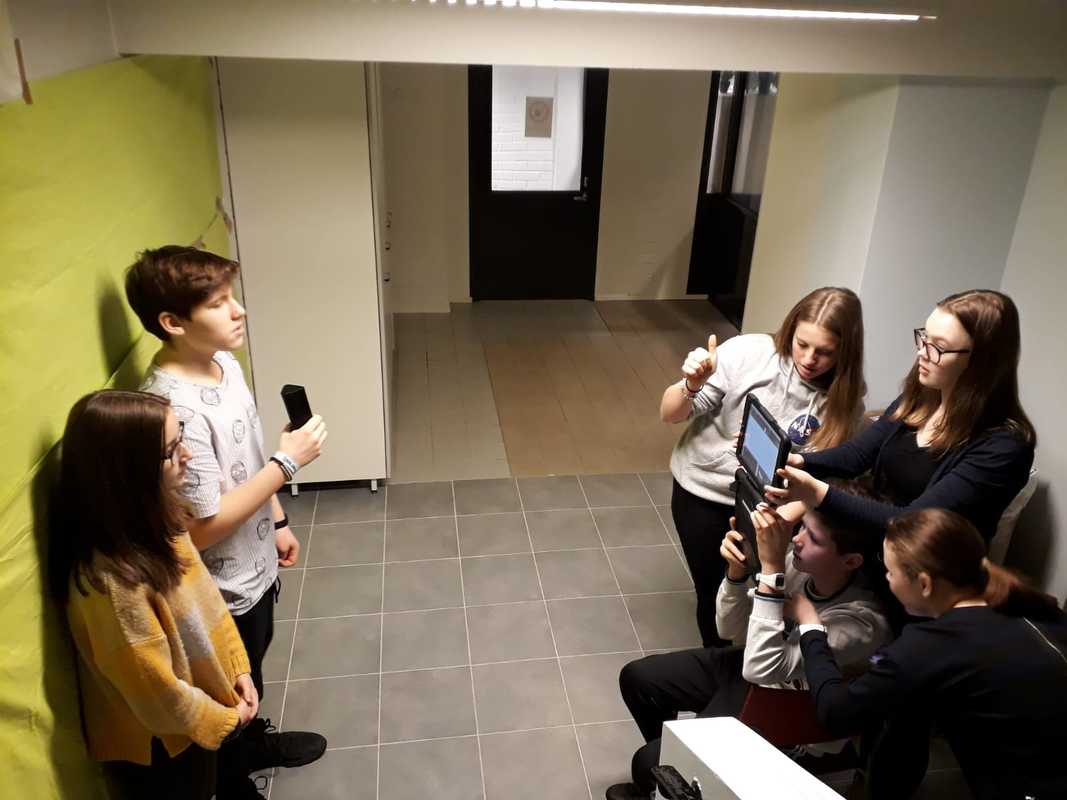
Future skills and occupations in circular economy
During the week, we focused on future occupations and necessary skills in circular economy. The pupils learned or repeeted, what circular economy means, discussed about the way to sort out household rubbish in different countries, figured out, how to minimize the amount of waste by reusing material and find out improvements to packages that were sold in the local shops.
We also visited Orthex, a local plastic company, that produces bio-based plastics and made a Rosk'n Roll tour at the local waste sorting center. At Aalto University's department of bioproduct and biotechnology we learned about new innovations made to reduce waste and to create sustainable, bio-based and/or biodegradable products to replace fossile-based and/or non-biodegradable products. A visit at Touchpoint showed us how much we can decrease the consumpion of energy, resources and the amount of carbon dioxide during the production of working clothes by useing recycled and/or bio-based materials.
During the visits, the guides and lecturers highlighted the importance of team work, language, multicultural and social skills as well as creativity in the future working life. So did also professionals, that came to our school to tell the international group and all 9th graders about their occupations, skills needed in and future aspects of their jobs.
The pupils learned and improved many skills, such as English and multicultural, social and team work skills while working in smaller or bigger international groups, creativity in an innovation group contest and networking when creating connections to the employees of the companies that we visited. In the families the guest pupils and their hosts improved their ability to adjust into new and changing situations.
The week was not all about work: As cultural activity, the pupils participated in an mobile phone throwing contest and made a tour in our capital city! In Helsinki, the pupils spent an hour in a trampoline park jumping and playing touch ball in teams, which turned out to be the ultimate ice breaker activity! After the week full of new experiences, we made a guided tour in Tytyri limestone mine and celebrated the farewell evening together with the host families. We hope, that the participants established friendships and got memories that will last for a life time.
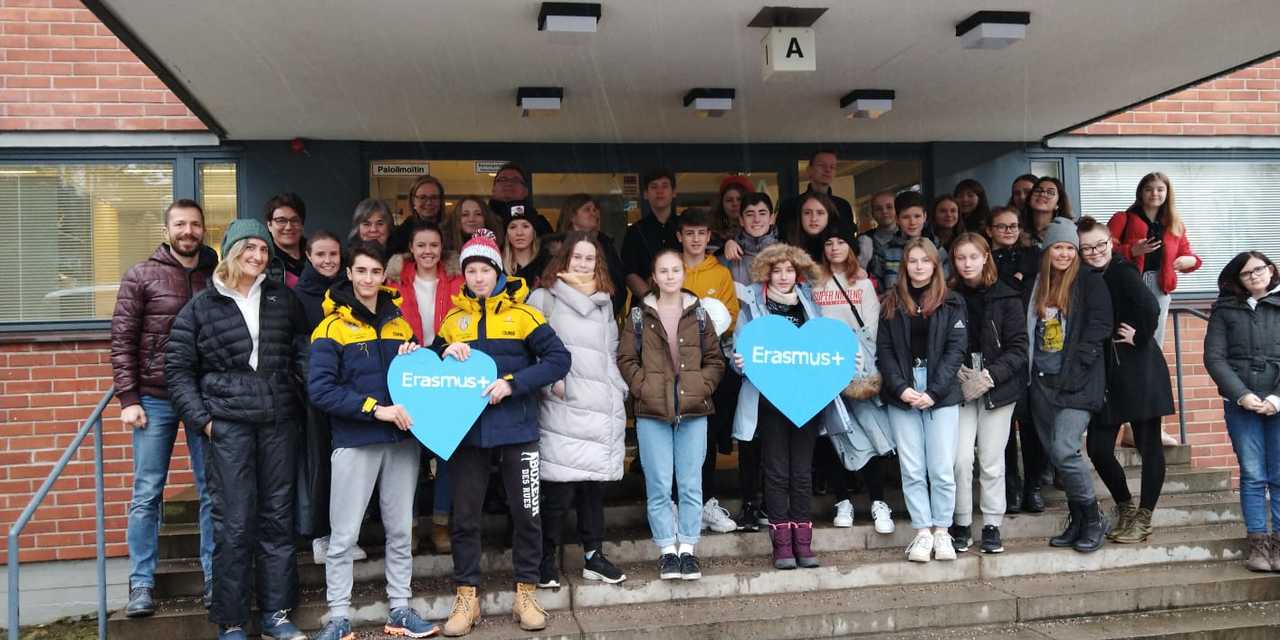

At Orthex plastic company in Lohja
Orthex is a finnish plastic factory, it’s originally from Lohja. In Finland there is one factory, and the other two are in Sweden. Orthex makes different things for kitchen, bathroom, children, home and for outside. They started the factory from a small room many years ago and it’s growing up all the time.
Orthex streight is that they use plastic made from wood, sugar cane, old plastic bottles and fishing nets for their products ( in 2020 they are trying to use the 20% of the nature ). That means you can use those products for a long time. It is easy to recycle again and again.
They produce the plastic in this way: they make plastic flakes, put them in to the machine, melt the plastic with a lot of heat and push it to a mold by presion. They can finish one item very quickly because of the water, it would calm down the temperature.
Orthex is known for their quality products, thats why consumers wants to buy them. That is also a reason why the machines are working all the time. It is so important that orthex uses different materials from nature and plastic because we have to recycle.
By Sini, Venla, Laura, Kamilla, Kaarel, Sauli, Ella and Inés
Rosk'n Roll tour in a local waste sorting center in Lohja
We went on a school trip to rosk´ n roll on Tuesday 28th January.
We went by a bus and we had a guided tour. The first thing we saw was a lot of different trash containers. They have containers for trash that can be recycled and for trash that can’t be recycled. There’s also a container where you can bring things and take things with you. Some stuff like plastic and tires cost to bring there, because they have to reuse it. About couple of moths ago they started to recieve hard plastics.
They seperate some type of light bulbsand they have a whole container of apples, because many of the finnish apples have a mummy disease and they can be recycled. Fridges are in a different container than other electronic stuff. In one continer they have old roof tiles that had lot of asbestos it was really popular about 50 years ago. There were a few hills and they were made of old trash. So basically they started to collect trash in to one big pile in the 80’s and eventually it became a one big hill
We learned a lot there about what they are doing and how they are doing things. We weren’t there for too long, because the weather was bad and there were workers doing their stuff.
In the future they want to offer more jobs for people.
Rhian, Enna, Rasmus, Iida, Ainara, Elena, Patrik, Oosa
At Aalto University's Department of Bioproduct and Biotechnology in Espoo
Aalto University is a finnish university for chemical engineering.
The bioeconomy institute of Aalto university uses renewable natural resource to produce food, energy, products and services. They try to not consume the global natural resources but to recycle the products that already exist and to promote the economic development and create new jobs.
The problem is climate change and how can we make it better with bioeconomy.
All the extra wood from for example furniture could be used as a raw material for example clothes or biobased and biodegratable plastic products. The clothes could wore for example 20 years and that is a lot longer than normal clothes and it is better for the inviroment and after you use them you can recycle it and it will be a part of the circular economy. Also the biobased and biodegratable plastic products can be recycled and they will be a part of the circular economy.
We went to visit the university on wednesday, the 29th of january with the Erasmus+. They introduced us to their projects and explained us how they want to solve the problem with the climate change. We had a short tour, where we saw how they make clothes out of wood. They work a lot with their students who also come from foreign countries, and can get their degrees in english. If you want to go to the university you should be interestet in maths, chemistry, physics and languages.
By: Jerry, Samira, Laura, Sara, Lotta, Karoline, Asier
At Touchpoint in Helsinki
The Touchpoint is a company which makes clothes from recycled clothes. They’re 10 years old and have 12 workers. In 2018 they had a growth of 73% and out of all garments they used, over 80% was recycled . They make functional workwear by using circular economy.
The materials that Touchpoint uses are leftover fabrics from other companies. Touchpoint buys the leftover fabrics, makes them into new clothes and sells them to their buyers. The company is very special, because their making clothes without harming the environment. Unlike the other companies Touchpoint uses recycled fabrics instead of making new ones, and so reduce the pollution.
Out of the many working partners Touchpoint has, Pure waste produces materials for clothing in India.
Touchpoints longterm client Hesburger gave their old workwear to Touchpoint, where they transformed the clothing into tables and chairs for the customers. Touchpoint then made new clothes for Hesburger workers from recycled fabrics. The tables and chairs made from old clothing can last for 50 years.
Some of the clothes Touchpoint has made for companies can be seen in the headquarters of Touchpoint in Helsinki.
By participants of the LTT Lohja
